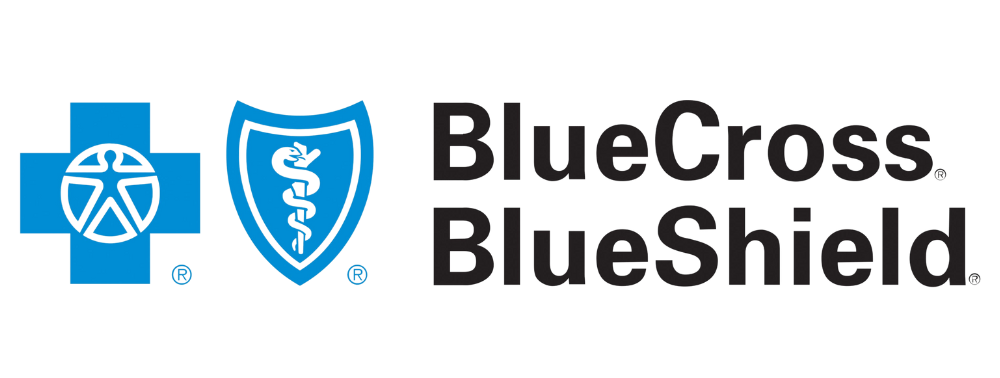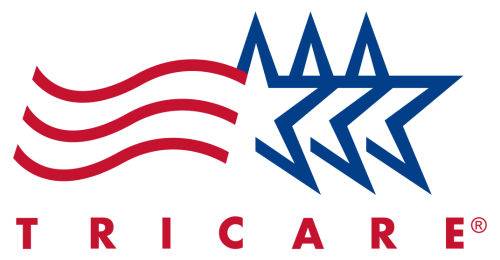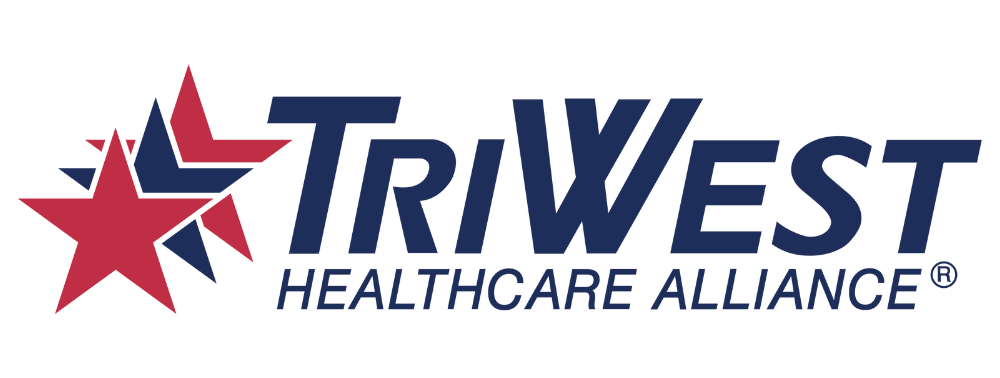Leaving a substance abuse treatment program you relied on for support can feel scary, but you’re not alone. Addiction recovery aftercare programs offer a bridge between treatment and your independent life that can help with recovery maintenance. They offer ongoing support and guidance to help you maintain the progress you’ve made.
Imagine having a coach to answer questions, help navigate challenges, and celebrate your victories. Aftercare programs can be individual or group-based, often including therapy, life skills workshops, and relapse prevention strategies. They’re there to empower you to build a healthy, fulfilling life on your terms.
Aftercare is a specific component of the recovery process that provides continuing care and resources to people who have finished receiving treatment in an inpatient or outpatient rehab program. Addiction treatment aftercare programs provide you with an individualized addiction recovery aftercare plan that can help you stay sober and avoid relapse as you return to your everyday life and routine.
Navigating the journey of recovery from drug or alcohol addiction is a continuous process that extends well beyond the initial treatment phase. As people transition back into their daily lives, aftercare programs help them maintain their sobriety and ensure long-term success. These programs are designed to provide ongoing support for people with mental and behavioral health issues.
There is a wide range of aftercare options available, some of which include:
Each type of program offers its own set of benefits, catering to different aspects of life after rehab to help you strengthen your commitment to sobriety. Understanding the various types of aftercare programs can help you make an informed decision about your path to recovery.
Rehab aftercare programs pick up where intensive rehab programs leave off, offering extra support and structure when stepping back into the “real world.” Following rehab, aftercare acts as a safety net while you navigate the complexities of life after treatment. Through ongoing therapy sessions, group meetings, and transitional living environments, aftercare reinforces the coping strategies and life skills you learned in rehab.
For this reason, these support services are crucial in preventing relapse, encouraging personal growth, and smoothing the transition back into everyday life. By staying connected with professionals and peers who understand the challenges of recovery, you can receive ongoing support as you maintain your sobriety and build a fulfilling life beyond addiction.
Alumni programs serve as an invaluable part of aftercare for people in recovery from drug or alcohol addiction. While provided through a rehab, these programs are less intensive than a traditional rehab aftercare program.
The main focus of an alumni program is to strengthen your relationships with the recovery community. Likewise, these aftercare programs strive to foster a sense of belonging through mutual support, encouragement, and understanding.
Alumni services include:
By engaging with your alumni community, you can share your experiences and successes while also gaining insights and strategies from others. By maintaining connections with fellow alumni and treatment providers, you can also celebrate milestones and strengthen your sober support network, both of which reinforce your commitment to recovery.
Twelve-step programs can offer a great deal of support for those getting over drug or alcohol addiction. The foundation of these aftercare programs is the understanding that addiction is a disease that cannot be cured but can be managed through personal commitment and peer support.
Originating with Alcoholics Anonymous (AA), these programs offer a structured approach to recovery based on spiritual principles. While participating in a 12-step program, members follow a set of progressive steps that encourage ongoing self-reflection and growth. This can include admitting powerlessness over addiction, making amends for past wrongs, and reaching out to help others struggling with addiction.
Twelve-step meetings are a beneficial form of aftercare, providing a sense of belonging and shared purpose, which is vital for those who often feel isolated by their addiction. By regularly attending meetings, you can develop coping mechanisms, build accountability, and establish healthy habits to support your recovery.
In a medical detox program, doctors and nurses monitor the individual’s health around the clock. They often use medications to ease symptoms, reduce cravings, and stabilize the patient’s condition. This medical support helps manage the physical and psychological discomfort safely.
The environment is controlled to prevent access to addictive substances, while also offering counseling and support to address emotional and psychological needs. The goal is to safely transition the individual from a state of physical dependence to readiness for ongoing treatment and recovery.
Alternative recovery programs are great resources for people seeking different pathways to overcome drug and alcohol addiction. These recovery aftercare programs incorporate a variety of therapeutic approaches, ranging from secular and holistic approaches to evidence-based therapies such as cognitive behavioral therapy (CBT), rational emotive behavioral therapy (REBT), and motivational interviewing (MI). These aftercare options cater to a diverse set of needs and beliefs to ensure everyone can find their people in recovery.
Holistic programs often incorporate Buddhist practices like meditation, yoga, and acupuncture to address the physical, mental, and spiritual aspects of recovery. Alternatively, secular groups focus on self-empowerment through science-based methods. By providing a variety of choices beyond traditional 12-step models, alternative recovery programs ensure that you have access to the personalized support you need to successfully navigate any challenges in recovery.
Transitional housing is often recommended as part of an aftercare plan. In general, transitional housing options provide a place where you can continue your healing journey alongside a community of your peers.
For those in recovery from addiction, these homes are also known as sober living residences. As a form of aftercare following rehab, these structured living arrangements provide a supportive, substance-free living environment. For those in recovery from severe mental illness, aftercare programs often offer mental health housing.
Both mental health and sober living facilities typically have rules and expectations, such as curfews, chores, and mandatory participation in support groups or counseling sessions. By encouraging responsibility, accountability, and mutual support, transitional housing prevents addictive behaviors and reinforces the use of coping strategies and life skills.
By incorporating structure and accountability into these housing options, they assist in bridging the gap between the highly structured setting of residential treatment centers and the full independence of returning to “normal” life. For this reason, recovery homes are a helpful stepping stone for anyone seeking to stay sober while gradually reintegrating into society.
Aftercare substance abuse treatment programs offer numerous benefits for individuals in recovery:
Relapse Prevention: Aftercare provides a structured and supportive environment that helps individuals identify and manage triggers, cravings, and high-risk situations, reducing the likelihood of relapse.
Continued Support: Recovery is an ongoing journey, and aftercare ensures that individuals have access to a network of professionals and peers who can provide guidance, encouragement, and accountability.
Life Skills Development: Aftercare programs often include life skills training, such as stress management, communication skills, and employment assistance, helping individuals develop the tools necessary for successful reintegration into society.
Monitoring and Accountability: Regular check-ins, drug testing, and monitoring help individuals stay accountable and on track with their recovery goals.
Transition Assistance: Aftercare serves as a bridge between intensive treatment and independent living, providing a gradual and supported transition back into daily life.
The role of case management is to assist clients with accessing recovery resources, setting goals, and monitoring your progress. During and after treatment, your case manager serves as a central point of contact and advocate for you to ensure your needs are met throughout your recovery journey. As such, a case manager is a treatment professional who plays a crucial role in aftercare programs. Not only do case managers help you develop your initial treatment plan, they also assist in coordinating and overseeing your aftercare plan.
An addiction recovery aftercare plan is your roadmap to staying sober and continuing your journey of recovery after you’ve completed the initial treatment for substance use disorders. It’s a structured support system to keep you on track and committed to your sobriety.
The main goal of an aftercare plan is to give people the tools and support they need to handle life’s ups and downs without falling back into substance use, reducing the risk of a relapse. To do so, your recovery aftercare plan is customized to you, considering all your unique triggers, social environment, personal goals, and any co-occurring mental health conditions.
By surrounding yourself with a supportive recovery community that lifts you up and supports your personal growth, an aftercare plan for substance abuse can help you achieve long-term recovery and live a happy, healthy life.
Addiction is an ever-growing problem across the United States. As it stands, opioids account for two-thirds (69%) of drug-related deaths—55 people across the nation die each day from an overdose of illicit or prescription opioids.
Unfortunately, Washington State is no different, with more than 68% of drug overdose deaths involving an opioid. Likewise, addiction to drugs and alcohol impacts the lives of Washington resident’s health and well-being in a myriad of ways. The Washington State Department of Health’s 2022 data on the drug overdose burden includes:
Aliya Health Group aims to turn these stats around with person-centered care for those who need addiction treatment. If you or anyone you know needs our drug and alcohol rehab program in Washington, call 888-973-2078 to speak with a recovery specialist today.
During an aftercare program, individuals can expect continued support to maintain sobriety and manage their recovery. It is important to continue utilizing these services even after completing a formal treatment program, as recovery is an ongoing process that requires dedication and effort.
Aftercare programs provide a wide range of services, including:
By incorporating services into your aftercare plan, you can increase your ability to maintain your sobriety and live a fulfilling life free from addiction.
During an aftercare program, individuals can expect continued support to maintain sobriety and manage their recovery. It is important to continue utilizing these services even after completing a formal treatment program, as recovery is an ongoing process that requires dedication and effort.
Aftercare programs provide a wide range of services, including:
Professional support is an integral part of aftercare, both during and after treatment. Following treatment, professional aftercare services also include routine check-ins with alumni to stay connected and receive support when needed. Similarly, professionals connect graduates to alumni services that keep them engaged in their recovery community for ongoing support and guidance.
Peer support services play an important role in your aftercare plan for drug or alcohol addiction recovery. In these groups, members find camaraderie and understanding among peers who are working through similar struggles.
Popular examples of peer support services include:
By incorporating support groups into your aftercare plan, you can gain insights from unique perspectives as well as practical advice on overcoming everyday challenges in recovery. Engaging in peer support groups also helps you to grow your sober support network far beyond formal treatment sessions. As you continue attending meetings, you are reminded that you are not alone on your recovery journey, which can enhance your resilience and motivation to maintain a substance-free life.
Having the right environment is super important when you’re getting back on your feet from drug and alcohol addiction. After rehab, it can be challenging to transition back into everyday life. To help you stay on the right track, environmental support can provide structure, support, and accountability.
While working with your case manager, you can figure out which environmental supports are currently missing from your life. As you create your aftercare plan, you can access resources for environmental support services to help you maintain your progress in recovery.
Examples of environmental support in recovery include:
All of these services offer practical assistance while establishing an atmosphere of understanding and encouragement. As a result, environmental support services help to reinforce the healthy coping strategies to help you navigate your new, sober lifestyle with confidence.
Relapse prevention services are an essential component of an aftercare plan for drug and alcohol addiction. As your recovery journey extends beyond treatment, these aftercare services play a large role in addressing the multifaceted nature of addiction. In general, relapse prevention services provide ongoing support, education, and resources to help you maintain your sobriety and navigate the challenges of a life free from substance dependency.
During aftercare, a key part of relapse prevention is developing a plan for crisis management which includes:
By integrating relapse prevention into your aftercare plan, you routinely can practice these tools and strategies. In doing so, you can identify and manage potential triggers, cope with stress in healthy ways, and build a supportive network that encourages sustained recovery.
The duration of aftercare can vary depending on the individual’s needs and progress in recovery. Some aftercare programs may last for a few months, while others may continue for a year or more. The length of aftercare is often determined by factors such as the severity of the addiction, the presence of co-occurring mental health disorders, and the individual’s overall progress and stability in recovery.
It is important to note that recovery is a lifelong journey, and many individuals choose to continue participating in support groups, counseling, and other aftercare services even after completing treatment. For this reason, the goal is to establish a solid foundation for long-term sobriety and develop the necessary coping mechanisms and support systems to maintain a healthy, substance-free lifestyle.
Insurance coverage for aftercare programs can vary depending on the specific plan and the services included in the aftercare program. Many private insurance plans and government-funded programs, such as Medicaid and Medicare, may cover at least a portion of the costs associated with aftercare services, such as counseling, support groups, and case management.
It is important to check with your insurance provider and the treatment facility to understand the extent of coverage and any out-of-pocket costs. Some aftercare services, such as sober living arrangements or vocational assistance, may not be covered by insurance and may require additional out-of-pocket expenses.
At Aliya Health Group, our detox and rehab facilities accept most major health insurance providers on both a national and local level.
Some of the insurance plans we currently work with include (but are not limited to) the following:






















At Aliya Health Group, we understand that recovery is an ongoing journey, and our commitment to our clients extends beyond the initial treatment phase. Our comprehensive continuing care plans provide the support, resources, and guidance necessary for individuals to maintain their sobriety and achieve long-term success in recovery.
Our experienced team of addiction treatment professionals, including case managers, therapists, and counselors, work closely with each individual to develop a personalized aftercare plan tailored to their unique needs and goals.
We offer a range of aftercare services, such as:
Our aftercare program is designed to be flexible and adaptable. This helps to ensure that clients receive the level of care they need to successfully reintegrate into their daily lives. We believe in empowering our clients with the tools and resources necessary to build a strong foundation for lasting recovery.
At Aliya Health Group, we provide a wide range of evidence-based treatments to meet the needs of each client as they continue on their recovery journey. Our nationwide behavioral health treatment facilities provide safe and effective treatment and aftercare programs to support your recovery from alcoholism, drug addiction, polysubstance abuse, or mental illness.
If you or a loved one is seeking recovery support, contact us today to learn more about our aftercare program. Our admissions team is available 24/7 to discuss how we can support you on your journey to long-term recovery.
"*" indicates required fields
For Immediate Help Call: 888-973-2078
Aliya Health Group is a comprehensive network of addiction and mental health treatment centers, with locations spanning nationwide.
We are driven by our commitment to empower individuals, families, and the community by providing education, tools, and support, to help them lead healthy, fulfilling lives in recovery.
Our admissions team is available 24 hours a day, 7 days a week, 365 days a year.













